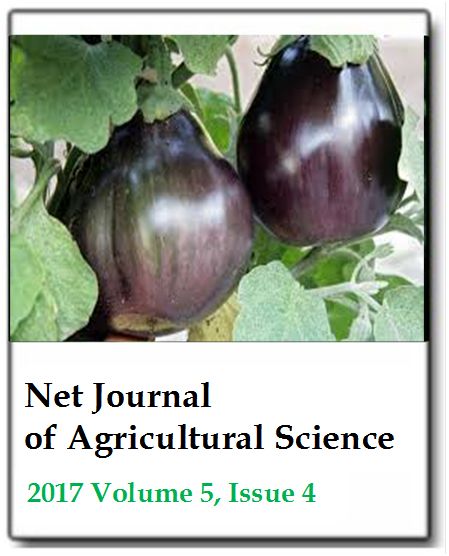Salinity tolerance at seedling stage for rice genotypes: In vitro analysis
Raghad S. Mouhamad, Lamiaa A. Mutlag, Ameerah H. Atiyah, Ibrahim B. Razaq, Muslim A. A. Abdulhussein, Munawar Iqbal and Arif NazirNet Journal of Agricultural Science
Published: October 18 2017
Volume 5, Issue 4
Pages 126-130
Abstract
Hydroponic cropping technique was utilized for evaluation of salinity tolerance of certain genotypes of rice under prevailing arid conditions of Iraq. The conditions envelop low level of characteristic issue, calcium carbonate conglomeration of soil and soils containing clear measures of gypsum, delicate to coordinate profile progression and low natural development. The seedling test is simple, rapid (4 to 6 weeks) and accurate. Furthermore, this test allows the screening of several seedlings under various experimental parameters. Therefore, the three genotypes of IRRI rice (IR71999-3R-3-2-2B-1-1, IR71829-3R-82-1-1and IR63731-1-3-3-2) and two varieties of rice (Anber and Jasmine) under salinity stress (1.2, 4, 8 and 10 dS/M) were investigated. The experiment was conducted in a growth chamber under simulated arid conditions in a completely randomized distribution. Salt stress caused reductions in rice plant production (yield) reached more than 30%. Dry matter weight was decreased by 24% in all varieties ofrice. Sodium (Na+) concentration was significantly (p ≤ 0.05) higher in NaCI-treated plants. The Na+/K+ and Na+/Mg2+ ratio in IRSSTN-SS2 (IR71999-3R-3-2-2B-1-1, IR71829-3R-82-1-1) genotypes and Anber plant indicate that it is more susceptible to salinity than the rice verities. Consequently, this cultivar is more vulnerable to saltiness than the assortment Cotaxtla, which demonstrated more noteworthy resistance to this anxiety.
Keywords: Salinity, genotypes, in vitro, hydroponic, salt tolerance.
Full Text PDF
ISSN: 2315-9766
